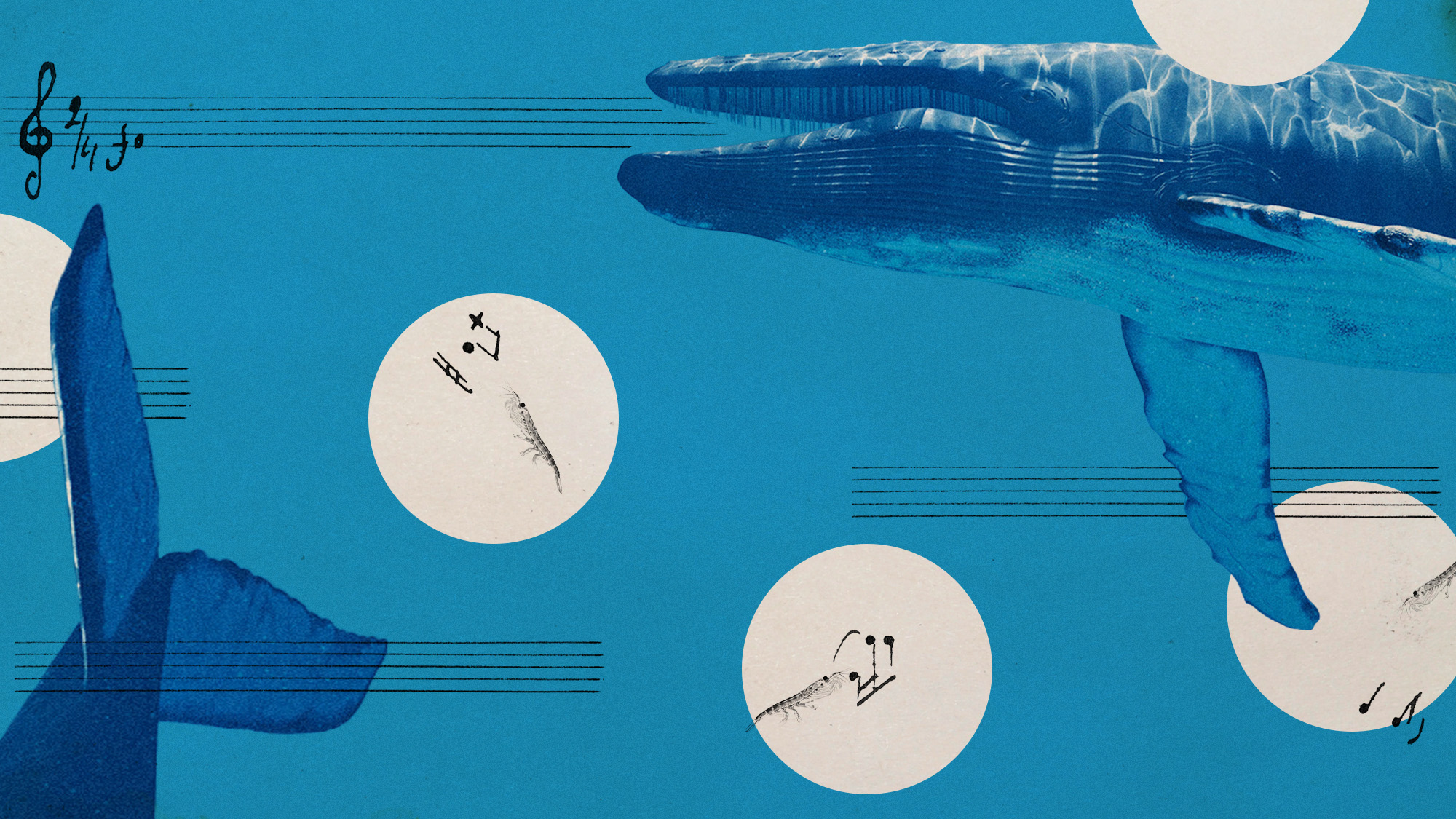Blue whales have gone silent and it's posing troubling questions
And warming oceans are the answer


A free daily email with the biggest news stories of the day – and the best features from TheWeek.com
You are now subscribed
Your newsletter sign-up was successful
Blue whales have been singing less, and it could be a bellwether of climate change. Warming oceans affect the availability of their only food source, krill, and according to a study published in the journal PLOS One, there's a correlation between blue whale vocalizations and their food supply.
Deep silence
The study tracked over six years of acoustic monitoring in the central California Current Ecosystem. During those years, blue whale sounds decreased by approximately 40%.
"We don't hear them singing," John Ryan, a biological oceanographer at the Monterey Bay Aquarium Research Institute and the lead author of the study, said to National Geographic. They are "spending all their energy searching." There's "just not enough time left over" for singing, and that "tells us those years are incredibly stressful." It's like "trying to sing while you are starving,"
The Week
Escape your echo chamber. Get the facts behind the news, plus analysis from multiple perspectives.

Sign up for The Week's Free Newsletters
From our morning news briefing to a weekly Good News Newsletter, get the best of The Week delivered directly to your inbox.
From our morning news briefing to a weekly Good News Newsletter, get the best of The Week delivered directly to your inbox.
Blue whales are one of the animals most affected by a lack of food, because krill is their "only food source," while humpback whales "also eat small fish such as anchovies and sardines," said Newsweek. And with fewer sounds by the ocean giants, there's "concern about how changing ocean conditions, likely caused by climate change, are impacting the species and what that will mean for biodiversity and whale numbers in the region."
The world's largest indicator
"When we have these really hot years and marine heat waves, it's more than just temperature," Kelly Benoit-Bird, a marine biologist at Monterey Bay Aquarium and co-author of the study, said to National Geographic. "The whole system changes, and we don't get the krill." So the animals that "rely only on krill are kind of out of luck." High ocean temperatures lead to algal blooms that can kill krill. And blue whales are "forced to forage over a much larger geographic area when krill populations become depleted," said Newsweek.
Marine heat waves are only going to get worse due to fossil fuel usage. Oceans act as the world's largest carbon sink, meaning they "already absorb more than 90% of the excess heat from climate change," said The Independent. There are "whole ecosystem consequences of these marine heat waves," said Benoit-Bird. If whales "can't find food and they can traverse the entire West Coast of North America, that's a really large-scale consequence."
Blue whales, the largest animal on the planet, can provide important "clues about how resilient different whale species may be in the face of changing ocean conditions," said Newsweek. As they "navigate seas transformed by climate change, noise and industrial activity, their voices offer a vital record of a world in flux," said National Geographic. And if a species "capable of roaming an entire coastline begins to falter, struggling to find food and delaying reproduction, researchers say the signal is unmistakable: Something deep within the ecosystem is shifting."
A free daily email with the biggest news stories of the day – and the best features from TheWeek.com
Devika Rao has worked as a staff writer at The Week since 2022, covering science, the environment, climate and business. She previously worked as a policy associate for a nonprofit organization advocating for environmental action from a business perspective.
-
 The environmental cost of GLP-1s
The environmental cost of GLP-1sThe explainer Producing the drugs is a dirty process
-
 Nuuk becomes ground zero for Greenland’s diplomatic straits
Nuuk becomes ground zero for Greenland’s diplomatic straitsIN THE SPOTLIGHT A flurry of new consular activity in the remote Danish protectorate shows how important Greenland has become to Europeans’ anxiety about American imperialism
-
 ‘This is something that happens all too often’
‘This is something that happens all too often’Instant Opinion Opinion, comment and editorials of the day
-
 The environmental cost of GLP-1s
The environmental cost of GLP-1sThe explainer Producing the drugs is a dirty process
-
 The plan to wall off the ‘Doomsday’ glacier
The plan to wall off the ‘Doomsday’ glacierUnder the Radar Massive barrier could ‘slow the rate of ice loss’ from Thwaites Glacier, whose total collapse would have devastating consequences
-
 Can the UK take any more rain?
Can the UK take any more rain?Today’s Big Question An Atlantic jet stream is ‘stuck’ over British skies, leading to ‘biblical’ downpours and more than 40 consecutive days of rain in some areas
-
 As temperatures rise, US incomes fall
As temperatures rise, US incomes fallUnder the radar Elevated temperatures are capable of affecting the entire economy
-
 The world is entering an ‘era of water bankruptcy’
The world is entering an ‘era of water bankruptcy’The explainer Water might soon be more valuable than gold
-
 Climate change could lead to a reptile ‘sexpocalypse’
Climate change could lead to a reptile ‘sexpocalypse’Under the radar The gender gap has hit the animal kingdom
-
 Why scientists want to create self-fertilizing crops
Why scientists want to create self-fertilizing cropsUnder the radar Nutrients without the negatives
-
 The former largest iceberg is turning blue. It’s a bad sign.
The former largest iceberg is turning blue. It’s a bad sign.Under the radar It is quickly melting away
